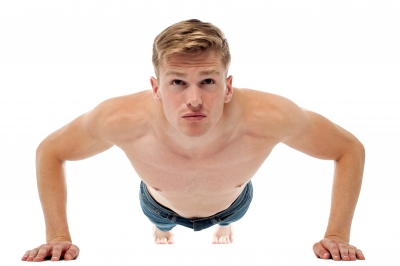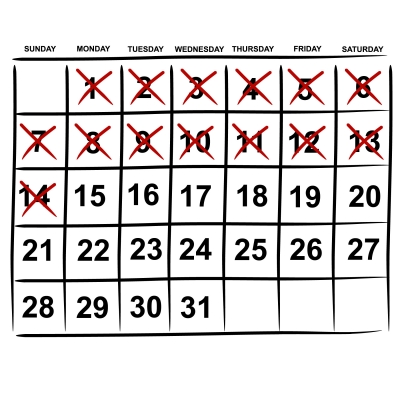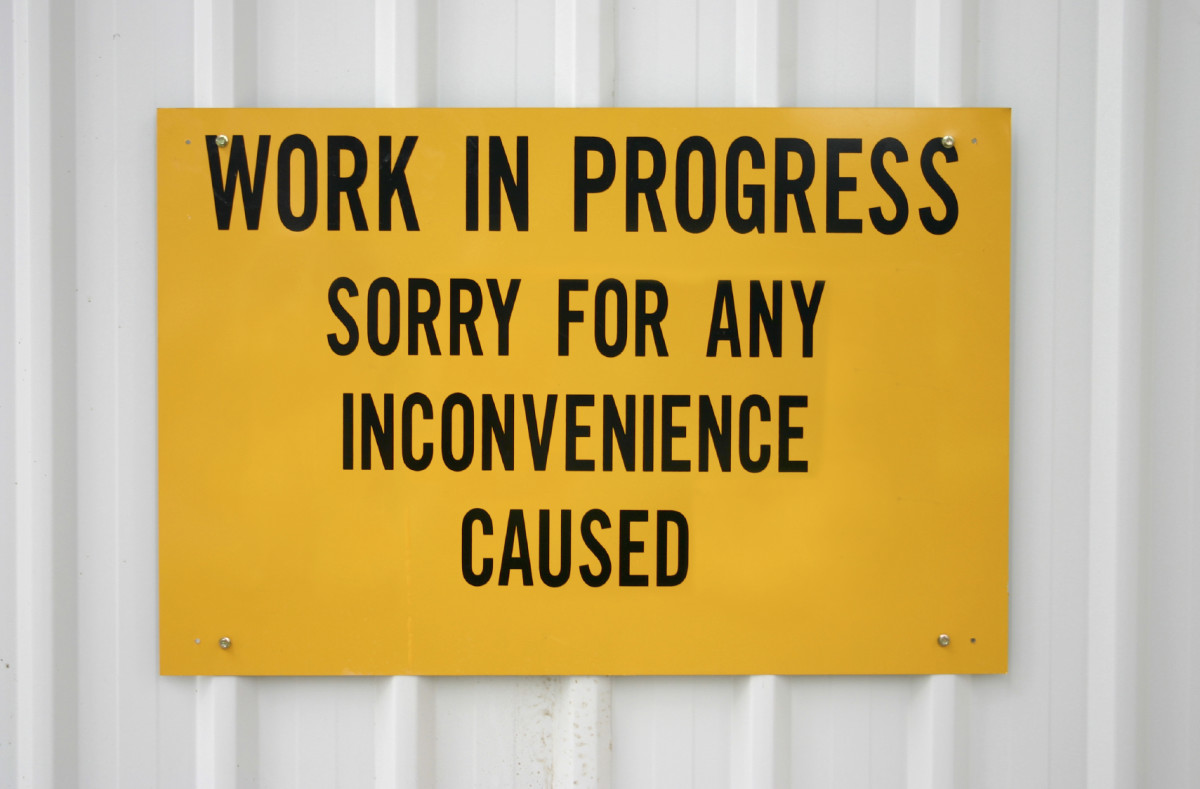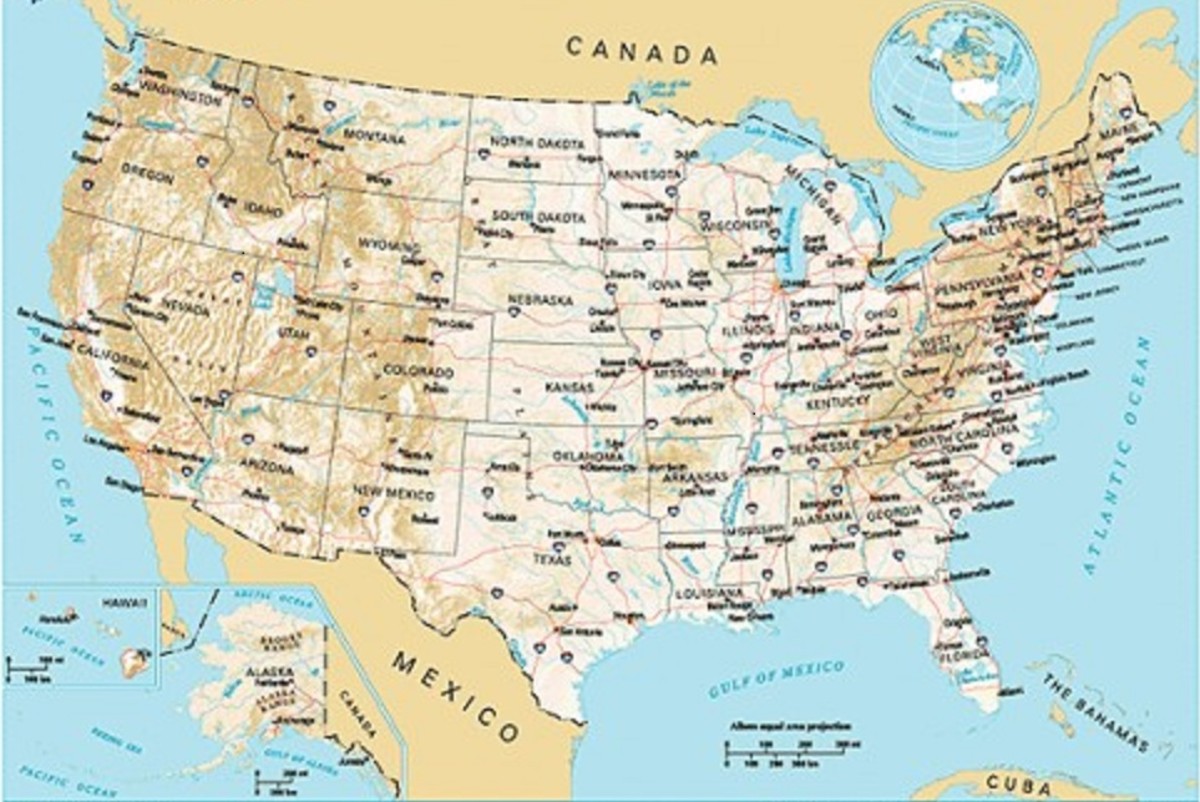- HubPages»
- Health»
- Quality of Life & Wellness»
- Personal Development
Use the Power of Habits to Increase Personal Productivity and Satisfaction
Introduction
Do you have things you'd like to do on a regular basis? Exercising, reading, and eating right are some examples. These are things that help improve your health and happiness. Do you find that although you start these activities with the best of intentions, you have difficulty finding the willpower to keep doing them for long? You're not alone. Many people find themselves in this situation, but there is something you can do about it.

The Problem With Willpower
Many people can use willpower to force themselves into action for short-term things. However, willpower uses up a lot of mental energy. The more difficult the task, the more mental energy it takes to get started. Before long, willpower fails and you stop doing what had seemed so important at first. For example, not many New Year's resolutions last until Spring. Pure willpower uses up too much mental energy to last much longer than that.
This lessening of willpower and self-control over time is a psychological effect known as “ego depletion”. It can vary depending on factors that include motivation, fatigue, training, age, and other factors. It's interesting to note that people over the age of 40 tend to be less susceptible to ego depletion than younger people.1
While willpower can work for many people for a limited time, and for a few especially strong-willed people for a longer time, there is a better way – habits.
What Are Habits?
The American Journal of Psychology defines a habit as “... a more or less fixed way of thinking, willing, or feeling acquired through previous repetition of a mental experience”. It's a regularly repeated routine behavior that occurs with little or no conscious thought. Unlike something that you have to use willpower to force yourself to do, things done by habit require no mental energy at all. (This is useful for good habits, but a problem for habits you'd rather not have.)
Research suggests that repeating an activity over time leads to the creation of neural pathways in the brain that simplify performing the activity. The more often the action is repeated, the stronger these pathways become. The stronger the pathways, the easier it is to perform the activity.
The ability of the brain to adapt like this is known as neural plasticity2. “Muscle memory”, where an action is repeated over and over until it's automatic, is another example of neural plasticity. This is very common in sports, martial arts, and playing musical instruments.
The issue then becomes: How do I make a habit of something that would normally require willpower?
Establishing Habits
As The American Journal of Psychology states, a key part of a habit is a “feeling acquired through previous repetition”. That means that you need to repeat an action over and over for an extended time for it to become a habit. Doing something a few times won't work; you need to repeat it often enough that it becomes an automatic action that you don't even have to think about. The quality of an action becoming so automatic that it requires no conscious thought or effort is known as automaticity3.
How Long Will this Take?
How long it takes to establish a new habit depends on the difficulty of the action as well as the size of the perceived reward. Things that take more mental energy to accomplish or have a delayed benefit take longer to turn into a habit than something simple with an immediate benefit.
For example, if the habit you want to establish is eating an ice cream sandwich after dinner every day, that won't take long! Eating something you like takes no mental energy and the benefit – a tasty treat – is immediate and gratifying.
On the other hand, establishing a habit such as jogging is much more difficult. Because of the effort, discomfort, and time involved, a lot of mental energy is needed to make yourself get started and the benefit isn't noticeable until long after the habit is fully established.
More About Habits
We've already stated that willpower takes a lot of work and eventually fails. That's why establishing habits is better. Habits are formed by regularly repeating a task over time. Doesn't that take willpower?
This is where we can use a psychological trick on ourselves to make establishing habits simpler and more reliable. We'll call this a “mini habit”.
Mini Habits
I first encountered mini habits in a book by Stephen Guise called “Mini Habits: Smaller Habits, Bigger Results”. A mini habit is a very small version of a habit that you want to establish. For example, if you want to form the habit of reading every day, the mini habit version is to read a single page, every day, without fail. If the habit you want is to do 100 push-ups per day, the mini habit version is to do one push-up per day, every day, no matter what.
The intent is to make the mini habit so simple to do that no willpower is needed. In other words, make the goal too easy to fail.
Isn't Such A Small Goal Pointless?
Although the goal of a single push-up or reading one page of a book seems pointless, it really isn't. There are two reasons for this.
-
The one push-up or one page read isn't the real goal at this stage; the real goal is establishing the habit.
-
The one push-up or one page read is a minimum, not a maximum.
Because habits are formed through regular repetition, performing the action every day is critical to establishing the habit. Making the goal so easy to reach removes the stress and dread that keeps many people from starting. If the goal was to do 50 push-ups, it would be easy to decide against putting out the effort and enduring the discomfort. Since the goal is only one push-up, there's no mental barrier holding you back. The success of meeting the goal (even as small as it is) provides positive reinforcement and helps keep you going.
Also, this super-simple goal is a minimum, not a maximum. There's no requirement to stop at one push-up or reading one page of a book. Once you start the action, you can exceed the goal if you want. However, by giving yourself permission to stop at the minimum goal, it's very easy to perform the action to help establish the habit.

Example
For a real-world example, I decided to start a mini habit of one push-up per day about four weeks ago. Since that time, I've exceeded the goal every day. Once I'm in the push-up position, it seems silly to stop at one. In the last two weeks, I haven't done fewer than 15 push-ups, usually while waiting for the water for my morning tea to boil. Sometimes I've repeated this later in the day, although that's not part of my original goal.
Record Your Accomplishments
Keep a log that shows your goal and your actual activity. Writing it down gives you physical proof of what you've accomplished. This further reinforces establishing your habit. I recommend logging the date, the goal, the actual activity, and how many days in a row you've met your goal. It would look something like the table below.
I find the “Consecutive Days” column to be a strong motivator to keep going. If I've met a goal 30 days in a row, I'll make a supreme effort to stretch that to 31 days, 32 days, 33 days, etc. It would take extreme circumstances for me to start over at 1; I want to keep the momentum going!
Mini Habit Log
Date
| Goal
| Actual
| Consecutive Days
|
|---|---|---|---|
07/05/2014
| 1 push-up
| 15 push-ups
| 1
|
07/06/2014
| 1 push-up
| 20 push-ups
| 2
|
07/07/2014
| 1 push-up
| 15 push-ups
| 3
|
07/08/2014
| 1 push-up
| 25 push-ups
| 4
|
07/09/2014
| 1 push-up
| 20 push-ups
| 5
|

When Is It A Habit?
How long do you need to continue this mini habit before it's really a habit? That depends on you and the activity. Some studies say that it takes 30 days to establish a habit. Others say 45, 60 or some other number. There's a problem with all of these numbers - you and your situation are unique. A new activity won't be a habit simply because X number of days have elapsed.
Since you can't depend on the number of days, here are a few signs that suggest that your mini habit has become a full-fledged habit.
-
The activity is a normal part of your day. You no longer give it much thought.
-
It's easier to do the activity than to not do it.
-
You no longer worry about missing a day because you know you won't.
-
The activity is automatic. You no longer have to consciously decide to do it.
These are all good signs that this is now one of your habits. However, don't get overconfident and give up the mini habit too soon. It's better to keep it up a while longer just to be sure.
Multiple Mini Habits
Because meeting the target of a mini habit is so simple to do, you may be tempted to try to use more than one mini habit to establish multiple full scale habits at the same time. There's nothing wrong with that as long as you don't get too carried away.
Reaching the target of one mini habit is quick and easy, but it's much more of a chore if you're trying to reach the targets of ten mini habits at once. That defeats the purpose of the low stress, easy to succeed, “too small to fail” target of the mini habit.
What Are Likely Candidates For Mini Habits?
Mini habits only work for adding new positive habits. If you want to quit smoking, mini habits won't help. If you want to lose weight, mini habits probably won't help (although they may help you start to eat in a more healthy way.)
Some good candidates for mini habits include:
Fitness
-
One push-up
-
One deep-knee bend
-
Jumping jacks for 30 seconds
Brain Power
-
Complete one clue in a crossword puzzle
-
Read one page of a book
-
Read the definition of one word in a dictionary and use that word in a sentence
Health
-
Drink one glass of water
-
Eat one piece of fresh fruit
-
Eat one serving of fresh vegetables
Conclusion
Using habits instead of willpower can help you succeed in accomplishing some of your long-term objectives. Mini habits can help you form those habits in a simple, painless way. Consistently meeting or exceeding super-small goals provides positive reinforcement with no threat of failure.
Try the mini habit method of establishing habits to meet goals and see how it works for you.
1 - http://en.wikipedia.org/wiki/Ego_depletion
© 2014 Ron Bergeron









